
Getting a pet offers a myriad of benefits, both emotional and physical. They provide companionship, reducing feelings of loneliness and isolation. Pets can instill a sense of responsibility, especially in children, teaching them about nurturing and care. They also promote an active lifestyle, as many pets need regular exercise. The simple act of petting or cuddling a pet can relieve stress and lower blood pressure, improving your overall health.
In the vast world of pets, furry companions like dogs and cats often get the most attention. But what if you’re looking for something more unique? Something that doesn’t require frequent walks, constant grooming, or high-intensity play?
Need a distinctive, low-maintenance companion? Invertebrates end your search! These fascinating animals include insects, crabs, and even worms. With proper care, invertebrates can make great pets. This comprehensive guide explores invertebrate pets. We cover the pros, downsides, popular options, housing and care needs, feeding and nutrition suggestions, handling and contact approaches, and common obstacles. After reading this article, you’ll know how to choose the right invertebrate pet for your lifestyle and preferences.
Benefits of Invertebrate Pets
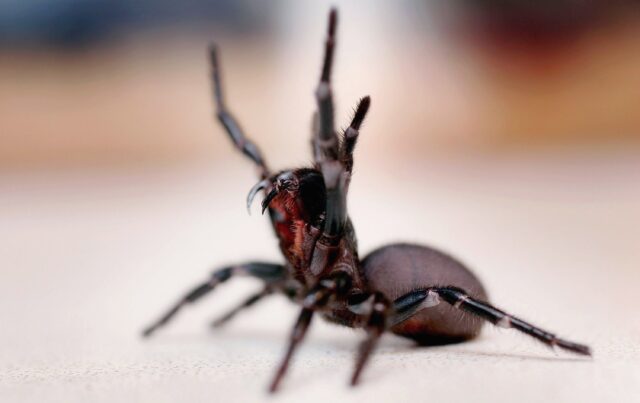
Low Maintenance
Invertebrates require less care than dogs and cats. They need no walks, grooming, or amusement. They’re ideal for busy people or those who want a low-maintenance pet.
Unique Appearance
The world of invertebrates is a vibrant one, filled with striking shapes, dazzling colors, and immersive sizes. The beauty of these stunning organisms can’t be denied – from their graceful frames to the intricate designs on their exoskeletons and bodies.
Educational Value
Exploring the behavior of invertebrate creatures, their life cycles, and natural habitats can be a captivating experience. Invertebrate pets provide an interactive opportunity to educate kids and adults about biology, ecology, and the wonderful variety of fauna on our planet.
Therapeutic Benefits
Many people find that watching and caring for invertebrates can have a calming and therapeutic effect. The serene nature of these pets can help reduce stress and anxiety. Additionally, maintaining a routine and tending to their needs can instill a sense of responsibility and provide a soothing sense of purpose.
Factors to Consider Before Choosing an Invertebrate Pet
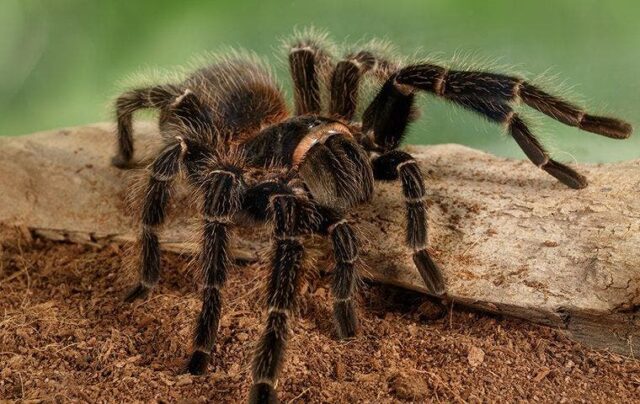
Lifespan
Invertebrates live from months to years. When exploring these fascinating organisms, it’s important to consider the species’ lifespan to ensure you’re ready. Invertebrates have a fascinating tapestry: some, like certain tarantula species, live for decades, while others, like stick insects, live far shorter lives.
Space Requirements
Different invertebrates have different space requirements. Some species require spacious enclosures to roam and explore, while others can thrive in more compact habitats. Consider the size of the enclosure needed for your chosen species and ensure you can provide an appropriate living space.
Level of Care
The level of care needed for invertebrate pets can vary significantly. Some species have specific temperature and humidity requirements that need to be carefully regulated. Others may have more straightforward care needs. Research the care requirements of the species you’re interested in and assess if you have the time, resources, and dedication to meet those needs.
Handling Suitability
Not all invertebrate pets can be handled. Due to their fragility and stress vulnerability, tarantulas should not be handled regularly. Stick insects and beetles may withstand mild handling. It’s important to analyze your interaction preferences and choose an invertebrate pet that matches them.
Availability of Supplies and Expertise
Before bringing home an invertebrate pet, ensure that you have access to the necessary supplies, such as appropriate enclosures, food sources, and any specialized equipment required. Additionally, it’s beneficial to have access to expert knowledge and resources, such as reputable breeders or experienced enthusiasts, who can provide guidance and support.
Popular Invertebrate Pets
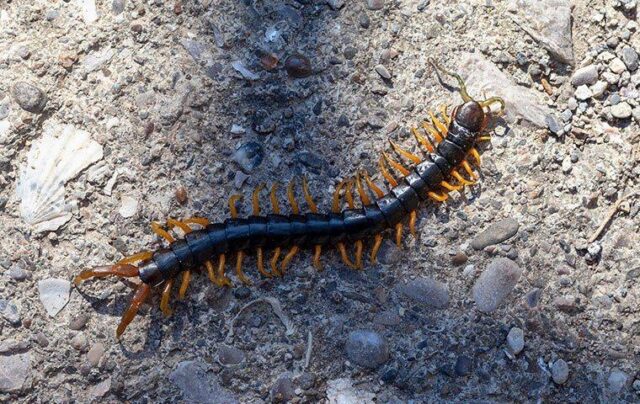
There is a wide variety of popular invertebrate pets to choose from, each with its own unique characteristics and suitability as pets. Here is an overview of some popular choices:
- Tarantulas: Large, hairy spiders known for their striking appearance. Low-maintenance pets but not recommended for handling.
- Scorpions: Fascinating creatures with pincers and stingers. Nocturnal pets requiring specialized housing. Not typically handled.
- Millipedes and Centipedes: Millipedes are docile, while centipedes are carnivorous. Specific care needed. Not recommended for beginners.
- Beetles: Diverse insects with impressive colors. Popular species include rhinoceros beetles and flower beetles. Habitat and dietary requirements vary.
- Stick Insects: Masters of camouflage resembling twigs. Low-maintenance pets that can be handled gently.
- Praying Mantises: Iconic predators with triangular heads. Need well-ventilated enclosures and live insect prey. Brief handling is possible.
Each of these invertebrate pets offers a unique experience. Research their care requirements before deciding which one is best for you.
Housing and Care Requirements
Creating a good terrarium for your invertebrate friend is key. Most invertebrates want a large terrarium that allows them to wander around.
Invertebrates need temperature and humidity control. Many animals come from tropical locations with year-round warm and humid weather, thus their cages must be properly recreated.
Feeding and Nutrition
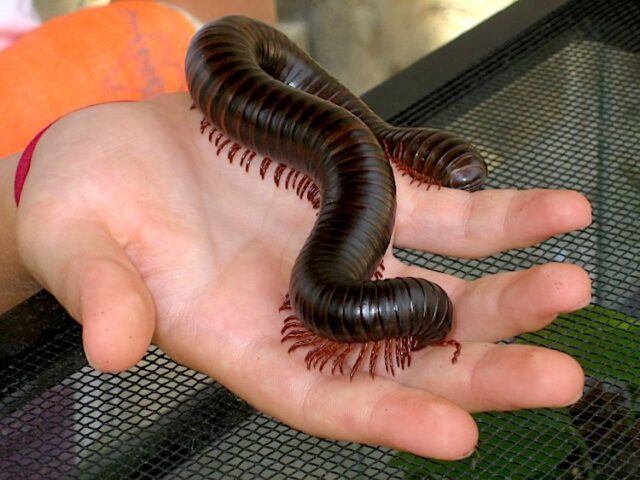
Invertebrates, unlike dogs and cats, cannot consume anything. In fact, improper eating can cause stomach disorders, malnutrition, and other health issues.
Researching your invertebrate pet’s species’ diet is crucial. Herbivorous snails eat leafy greens, algae wafers, and calcium supplements, while carnivorous praying mantises eat flies or crickets. It’s also vital to consider the food’s size—some insects may seem too big for a tiny invertebrate, but breaking them up can hurt them.
Handling and Interaction
Proper Hand Placement
Always ensure you place your hands properly when handling invertebrates. Use a gentle touch and avoid squeezing or applying excessive pressure. For larger invertebrates like tarantulas or scorpions, support their body and legs with a flat hand, keeping fingers away from their sensitive areas, such as the abdomen or stinger.
Avoid Unnecessary Stress
Invertebrates are sensitive creatures, and unnecessary stress can be harmful to their health. Minimize handling to essential activities only, such as transferring them to a new enclosure or conducting health checks. Avoid frequent handling or excessive disturbance, as this can cause stress and potentially harm the animal.
Respect Individual Tolerances
Each species of invertebrate has its own tolerance level for handling. Some species, like stick insects or beetles, can tolerate gentle handling, while others, like tarantulas or praying mantises, are generally not recommended for regular handling. Research the specific species you have and understand their natural behavior and handling preferences.
Precautions for Venomous Species
If you own a venomous invertebrate, such as a scorpion, it’s crucial to exercise extreme caution. Avoid handling venomous species unless you have the necessary experience and knowledge. If handling is required, use long forceps or tools specifically designed for safe manipulation.
Wash Hands Before and After
Before handling or after any contact with your invertebrate pets, wash your hands thoroughly with mild soap and warm water. This helps prevent the transfer of any potential pathogens and ensures cleanliness.
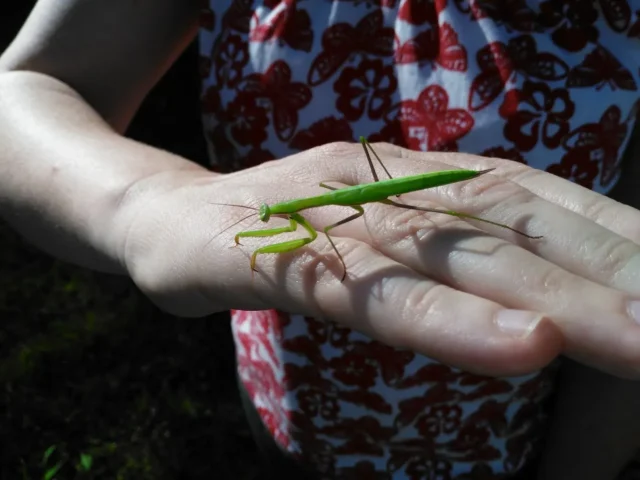
Final Thoughts
Summarize the main points covered in the article, emphasizing the unique qualities of invertebrate pets and the joy they can bring as companions. Encourage readers to carefully consider their preferences and lifestyle before making a decision. Restate the importance of providing proper care and attention to ensure the well-being of these captivating creatures.









